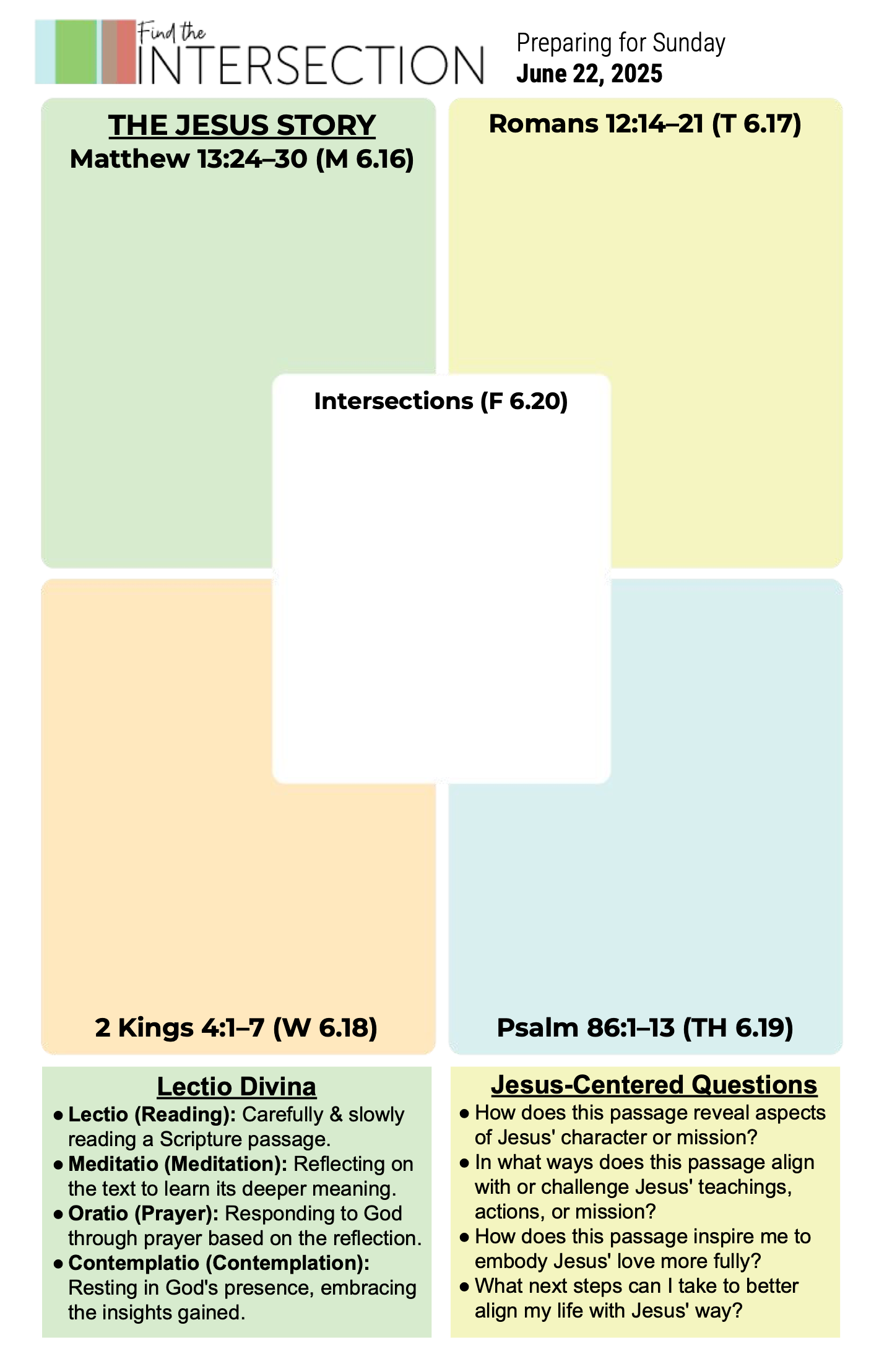How to Be Human in a Hostile World
Romans 12:14–21
Intersections | Tuesday, June 17, 2025
Preparing for Week 2 of “The Gospel According to The Servants”
Overcoming Evil
When harm finds us,
Our first instinct is to defend,
To lash out, or
To retreat.
But Paul gives us another way,
A way that feels upside down in a world wired for retaliation.
Bless those who curse you.
Feed your enemies.
Don’t repay evil for evil.
Overcome evil with good.
This isn’t a list of spiritual platitudes.
It’s a survival manual for disciples.
Not for how to win,
But how to remain human in a dehumanizing world.
It’s not about playing nice.
It’s about participating in the cross-shaped love of Christ,
Even when it hurts.
Context: Setting the Scene
Literary Context
Romans 12 marks a major turn in Paul’s letter, from theology to practice. After eleven chapters of grounding identity in God’s mercy, Paul now shows what a Spirit-formed life looks like. These verses are not moralistic demands but pictures of transformation. They describe what it means to live as members of one body in a fractured world.
Historical/Theological Context
Paul is writing to a diverse, tense Roman church, Jewish and Gentile believers navigating political hostility, cultural suspicion, and internal division. This section would have landed as both comfort and confrontation. Paul doesn’t just call individuals to personal virtue. He calls the community to embody a different ethic than the empire surrounding them.
Romans 12:14–21 (NLT)
14 Bless those who persecute you. Don’t curse them; pray that God will bless them.
15 Be happy with those who are happy, and weep with those who weep.
16 Live in harmony with each other. Don’t be too proud to enjoy the company of ordinary people. And don’t think you know it all!
17 Never pay back evil with more evil. Do things in such a way that everyone can see you are honorable.
18 Do all that you can to live in peace with everyone.
19 Dear friends, never take revenge. Leave that to the righteous anger of God. For the Scriptures say,
“I will take revenge;
I will pay them back,”
says the Lord.
20 Instead,
“If your enemies are hungry, feed them.
If they are thirsty, give them something to drink.
In doing this, you will heap
burning coals of shame on their heads.”
21 Don’t let evil conquer you, but conquer evil by doing good.
Key Insights (Expanded)
Blessing is resistance. To bless those who hurt us is not passivity, it’s holy defiance. It’s saying, “You don’t get to define me.” In a violent world, gentleness is power.
Empathy makes us whole. Rejoicing and weeping with others isn’t just kindness. It’s connection. It’s how we unlearn indifference and reclaim our shared humanity.
Humility is the posture of peace. Verse 16 warns against pride and superiority. Real peace isn’t just about avoiding conflict, it’s about dismantling the internal need to dominate.
Let go of vengeance. Paul echoes Jesus here: justice is real, but it isn’t ours to administer through payback. When we try to do God’s job, we wound others, and ourselves.
Goodness is a weapon of the Spirit. “Overcome evil with good” isn’t naïve optimism. It’s cruciform strategy. It’s trusting that love, even when it costs us, carries resurrection power.
Sacred Practice: Examine Your Reflexes
When you feel wronged, what is your gut response:retaliation, silence, sarcasm, withdrawal?
Sit in silence with this breath prayer:
Inhale: Overcome evil…
Exhale: …with good.
Ask the Spirit to shape your instincts into the image of Christ.
Jesus-Centered Question
Where in my life have I let evil define my response?
What would it look like to bless—not because they deserve it, but because I’m free?











